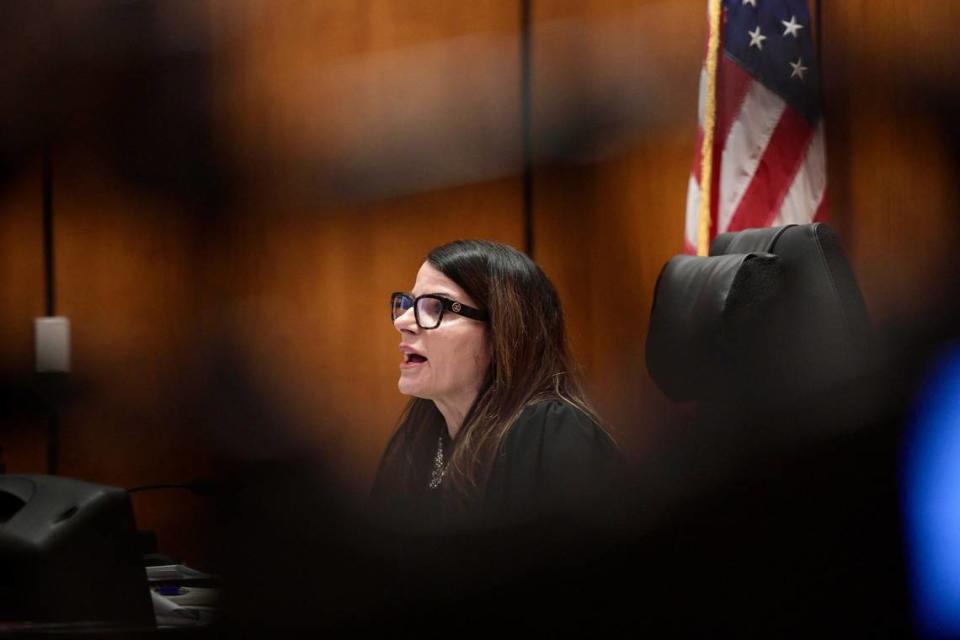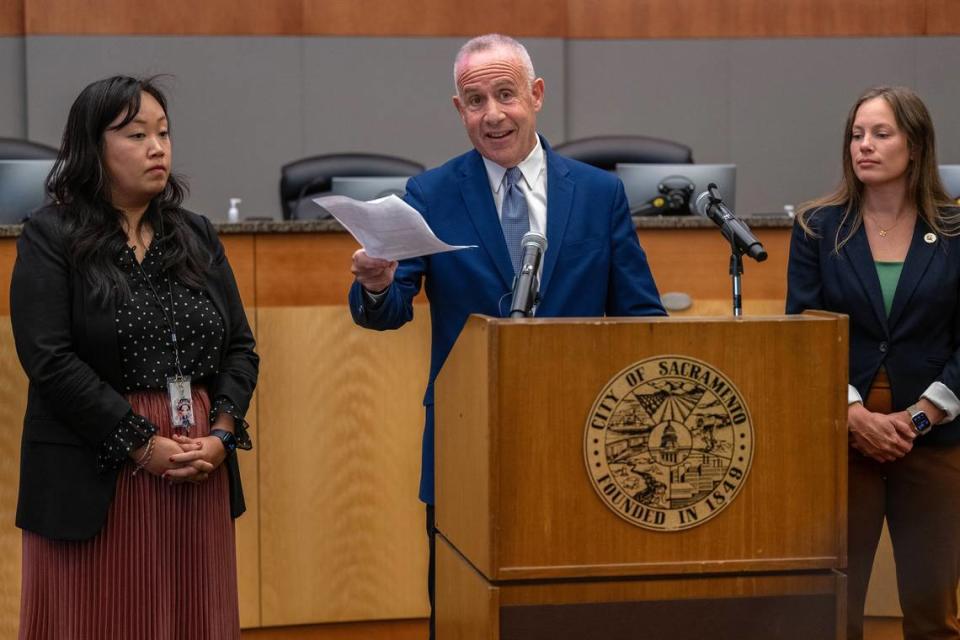Judge rules that Sacramento DA must revise allegations for court to consider homeless lawsuit
- Oops!Something went wrong.Please try again later.
A Sacramento judge rejected District Attorney Thien Ho’s lawsuit to compel Sacramento to crack down on the city’s homeless encampments but he will get the chance to restate his case.
Sacramento Superior Court Judge Jill H. Talley agreed with city attorneys who argued that the courts lack the power to interfere with legislative action at either the state or local level. Talley’s final ruling came Monday.
“The Court agrees that the separation of powers doctrine bars all of the People’s claims as presently alleged,” Talley wrote.
Talley gave Ho’s office 30 days to amend its complaint.
But the ruling is a setback for Ho, who sued the city in September and has been a sharp and frequent critic of official Sacramento’s response to the city’s homeless crisis.
Ho’s lawsuit alleged the city caused a public nuisance by allowing homeless camps to exist on public property and violated the state’s Water Code by allowing waste from city encampments to end up in the American and Sacramento rivers.
The district attorney also alleged that the city violated the state’s Fish and Game Code by allowing its homeless population to pollute creeks and streams. Talley said the city failed to prove it isn’t legally liable under state law.
But Talley also ruled that the district attorney’s lawsuit “is based entirely on the City’s alleged failure to enforce its ordinances against the unhoused population and its failure to adopt new policies to address the unhoused population and their encampments,” while providing no path to addressing the issues other than through legislation or enforcing existing laws.
“The Court finds the People’s argument is not persuasive,” Talley wrote.
Sacramento Mayor Darrell Steinberg said the focus now should be on solving the city’s homelessness crisis and took a swipe at the lawsuit:
“Anyone who is serious about helping people and our community should be measured on two things: Have you done your part to increase shelter and housing, and have you helped provide more mental health and substance abuse treatment to the people who need it most?” Steinberg continued. “Anything else is a sideshow and an unnecessary distraction.”
Sacramento City Attorney Susana Alcala Wood was more pointed on Monday. She called the lawsuit “flawed” and for Ho to focus instead on helping city and Sacramento County leaders solve the crisis.
The lawsuit and Ho’s earlier public remarks led Wood to speculate that Ho may be priming for a run at state Attorney General, potentially against Steinberg. Ho has denied the speculation.
“Playing politics with homelessness helps no one. Right now, both the City and County of Sacramento need to be focused on providing outreach and support to unsheltered residents,” Wood said in a statement following the Monday ruling. “It is time for the D.A. to finally abandon this exercise and start contributing to the ongoing work to create meaningful and lasting solutions to the homelessness crisis.”
In a statement Monday, the District Attorney’s office insisted its civil suit has spurred action from City Hall, claiming the city “has done more enforcement and compliance in the last 7 months than they have done in the last 7 years,” and said it would amend its complaint.
“The community has seen and felt the difference,” the D.A.’s statement concluded. “We will not give up on the City of Sacramento.”
Steinberg said the city’s work to reduce homelessness is producing results on Sacramento’s streets.
“Today’s decision is a reminder to all leaders in our community to focus on the work. Our city’s steadfast focus on providing help for people and enforcing our laws is starting to produce results on our streets. This will not change,” Steinberg said.
City officials have disputed the District Attorney’s claims, saying under its interpretation of the 2018 9th Circuit Court of Appeals Martin v. Boise ruling, the city cannot legally move people off public property unless a shelter bed to offer them is available.
The city’s roughly 1,300 shelter beds are all typically full, with a wait list topping 2,400. The city has cleared people off certain public properties when they have fully blocked sidewalks or fire station entrances, or are near schools — places where its ordinances prohibit camping.
The Bee’s Theresa Clift contributed to this story.





